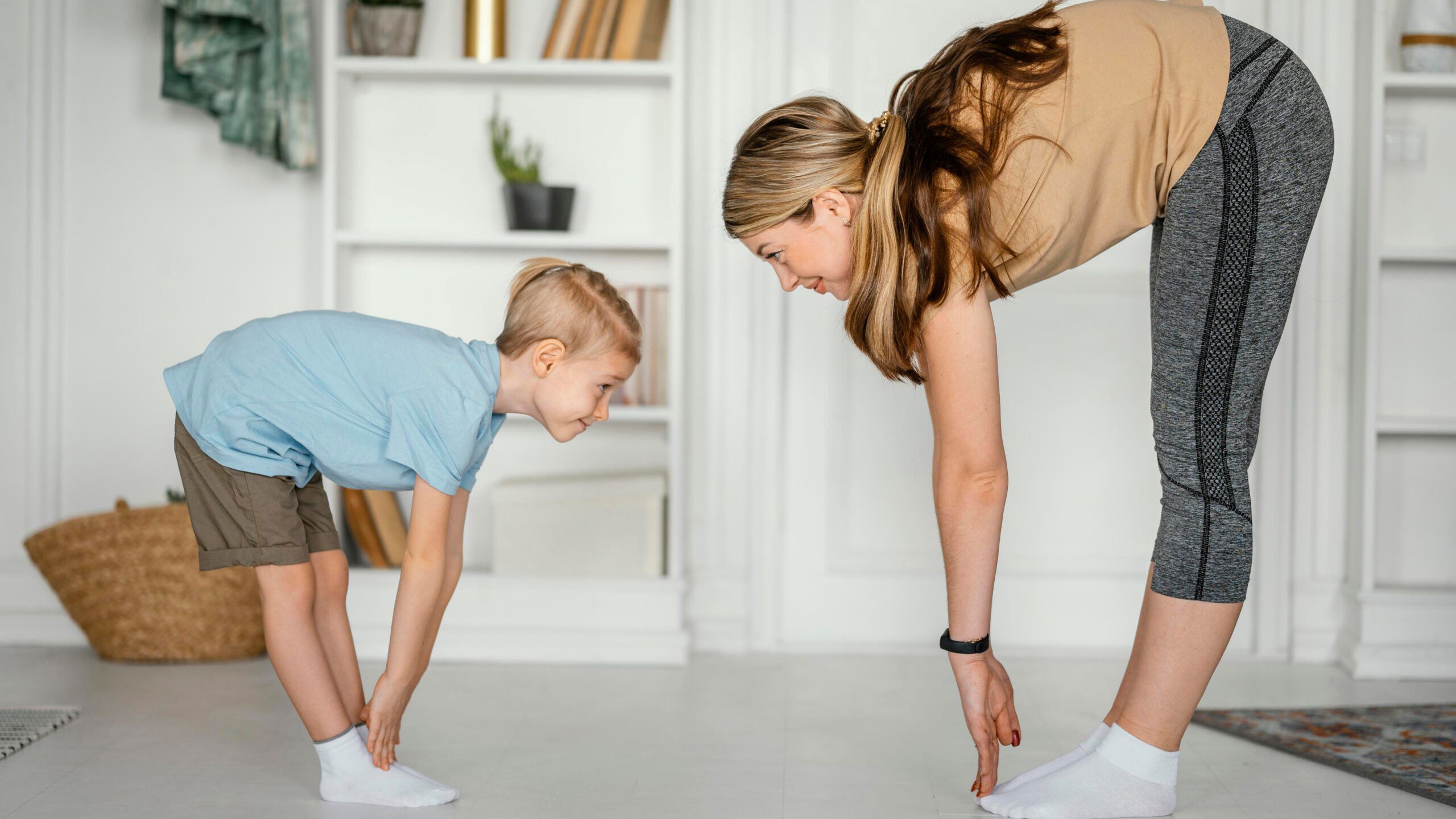Healthy habits start at home: Parents as role models for young kids

By Dr Michelle Wright
When it comes to helping young children live healthy, balanced lives, our actions speak far louder than our words. We can tell them to eat their vegetables, go outside to play, and get enough sleep but the habits they see us practise day after day are the ones that truly stick.
The Power of Example
Children are like little sponges. From the foods we choose to how we handle stress, they’re learning by observing. It’s the reason they repeat what we say, imitate our laughter, and adopt our mannerisms. The same is true for health habits. When they see us taking care of ourselves, we’re also showing them how to care for themselves. If we fill our plates with colourful vegetables, go for a short walk after dinner, or put our phones away at mealtimes, they notice. They also notice when we pause to take a breath before responding in a stressful moment.
It’s not about always being perfect. When kids see us miss a workout or enjoy a treat, then watch us get back on track without guilt, they’re learning resilience, balance, and self-compassion.
Making Well-being a Family Habit
Healthy routines work best when they’re shared, and for young children, they’re even more powerful when they feel playful.
Mealtimes can become moments of fun by letting children help with simple kitchen tasks like washing fruit and vegetables or setting the table. Colourful, rainbow-inspired plates make food more appealing and spark curiosity, while eating together without screens creates space for conversation and mindful eating.
Active play is another way to weave in healthy habits, including indoor games on a rainy afternoon, a treasure hunt around the garden, or a kickabout with a football in the park. These don’t need to be long: short bursts of ten to fifteen minutes spread throughout the day can be just as effective as a single long session.
Mindful moments also help children find balance: bedtime storytelling, quiet music, or even simple breathing exercises can calm the mind and body. And routines that build gratitude and connection can also be powerful. Sharing one good thing from the day at dinner or celebrating small acts of kindness encourages children to notice and appreciate the positive, strengthening both family bonds and their sense of well-being.

Looking After Yourself Benefits them too
Many parents pour all their energy into their children’s needs, but neglecting their own well-being can make this harder to sustain. High parental stress is linked with children feeling more anxious, being less active, and eating less healthily.
By caring for your own sleep, nutrition, and downtime, you not only feel better, you parent better. Your calm presence helps your child feel safe and supported.
Small Steps, Big Impact
Healthy habits don’t have to mean big changes. Adding one extra vegetable to dinner, turning off devices an hour before bed, or taking a short family walk can make a real difference over time. What feels ordinary to you can become the foundation of lifelong well-being for your child.
In the end, children don’t need perfect parents. They benefit most from seeing real examples of healthy routines, balance, and recovery when things don’t go to plan. By looking after yourself, you’re also helping your child grow up healthy, happy, and resilient.
QUICK FACTS: Parents as Well-being Role Models
What we do day-to-day really does rub off on our children. A large UK study following more than 12,000 teenagers found that for every extra portion of fruit or vegetables parents ate, their children added almost a fifth
of a portion to their own diets and the effect got stronger as kids grew into late teens1.
It’s the same with movement. A recent Spanish study showed that when parents were active, their children were far more likely to be active too. In fact, mums who managed around two to five hours of exercise a week were over three times more likely to have children who hit the recommended activity levels on school days2.
And even small changes at home can make a difference. A German study found that simply lengthening family mealtimes by about ten minutes led children to eat noticeably more fruit and vegetables at dinner3.
Mini Activity Ideas for Young Families
- Veggie rainbow challenge: Try a different coloured vegetable each day for a week.
- Family movement bingo: Create a bingo card with 10 fun activities like “10 star jumps” or “dance to a favourite song.”
- Mindful moments jar: Write calming activities (deep breaths, listening to birds, stretching) on pieces of paper and pick one to do together each evening.
- Feelings check-in: Ask “What made you smile today?” or “What was tricky today?” to build emotional awareness.
Doable Family Habits Ideas
Share one device-free meal together every day.
Make chores playful: try a “tidy-up race” or a treasure hunt while cleaning.
Plan one active family outing each weekend.
Keep consistent bedtime routines for everyone in the household.
Share gratitude or “feelings check-ins” at dinner or bedtime.

- Fildes, A., Potter, C., van Jaarsveld, C. H. M., & Wardle, J. (2024). Parent-adolescent associations in fruit and vegetable consumption across adolescence: Evidence from the UK Household Longitudinal Study. International Journal of Behavioral Nutrition and Physical Activity, 21(1), 23. https://doi.org/10.1186/s12966-024-
01604-8 ↩︎ - Lozano-Sánchez, E., Pardo-Guijarro, M. J., & Martínez-Vizcaíno, V. (2025). Associations between parental physical activity and children’s out-of-school moderate-to-vigorous physical activity: A cross-sectional study. BMC Pediatrics, 25, 48. https://doi.org/10.1186/s12887-025-06014-8 ↩︎
- Dallacker, M., Knobl, V., Hertwig, R., & Mata, J. (2023). Effect of longer family meals on children’s fruit and vegetable intake: A randomized clinical trial. JAMA Network Open, 6(4), e236331. htt ↩︎
